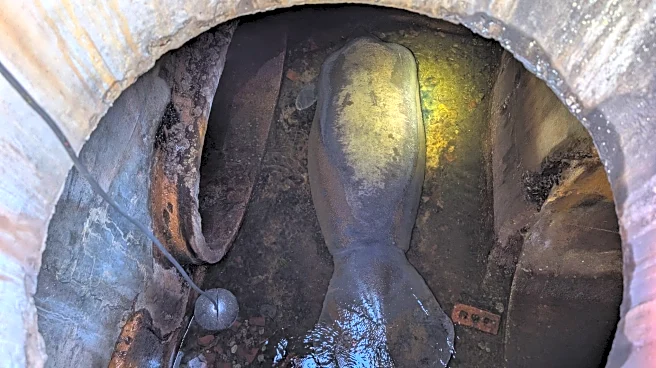What's Happening?
A recent article explores the vast diversity of insects, focusing on the phenomenon of parasitoids. Insects, which make up a significant portion of the animal kingdom, exhibit various life cycles, including
complete and incomplete metamorphosis. Parasitoids, a unique group of insects, lay their eggs inside or on other insects, leading to the host's eventual death. The article highlights examples such as the ichneumon wasps and emerald cockroach wasps, which use their hosts for reproduction. The piece also discusses the twisted-wing flies, which parasitize other insects during their larval stage, causing significant changes in the host's behavior and physiology.
Why It's Important?
Understanding the behavior of parasitoids is crucial for ecological studies and pest management. These insects play a significant role in controlling populations of other insects, which can impact agriculture and biodiversity. The study of parasitoids can lead to advancements in biological control methods, reducing the need for chemical pesticides. Additionally, the insights into insect diversity and life cycles contribute to broader ecological knowledge, aiding in conservation efforts and the maintenance of healthy ecosystems.










